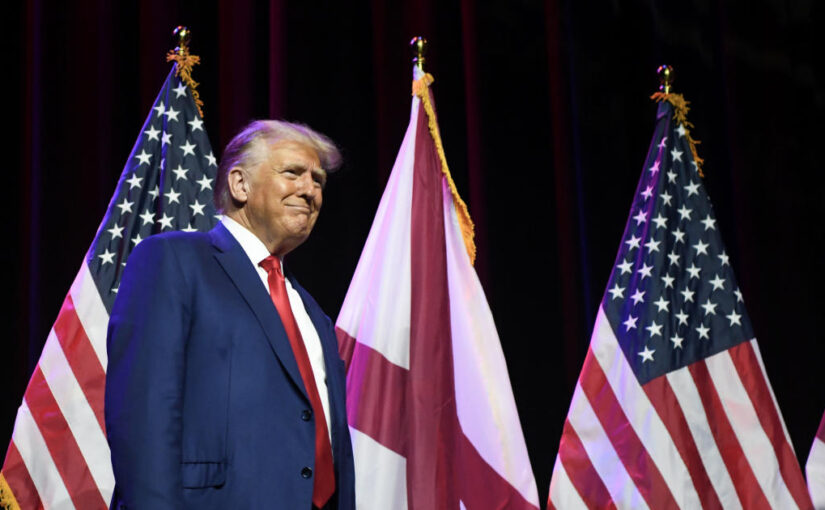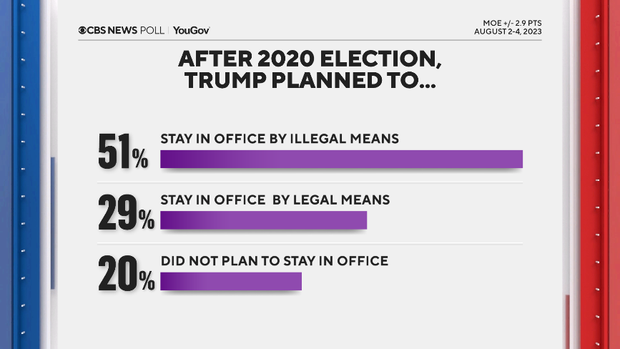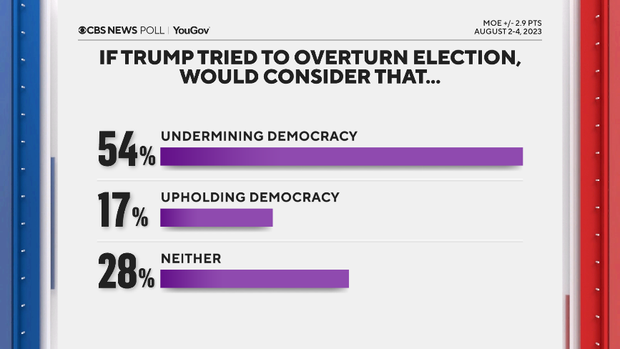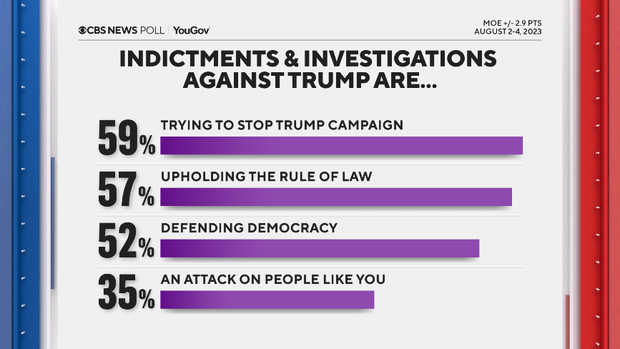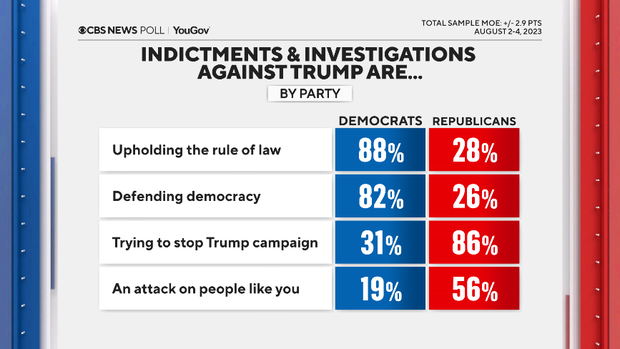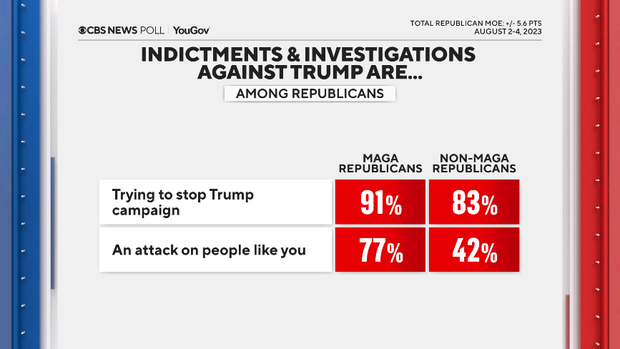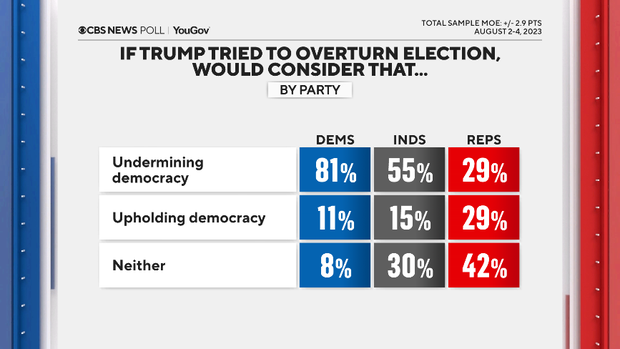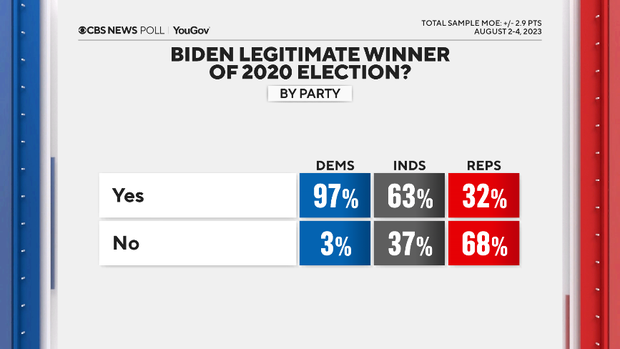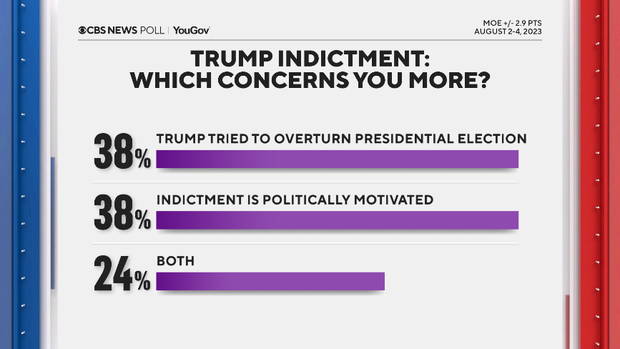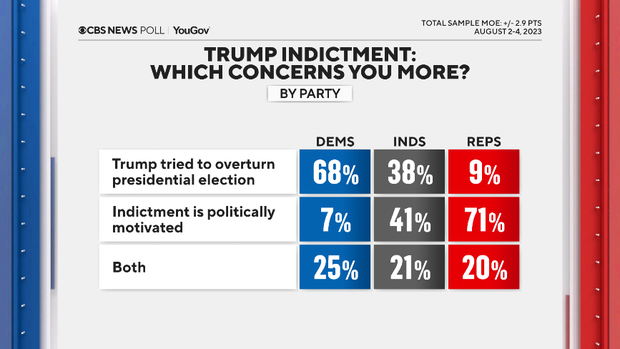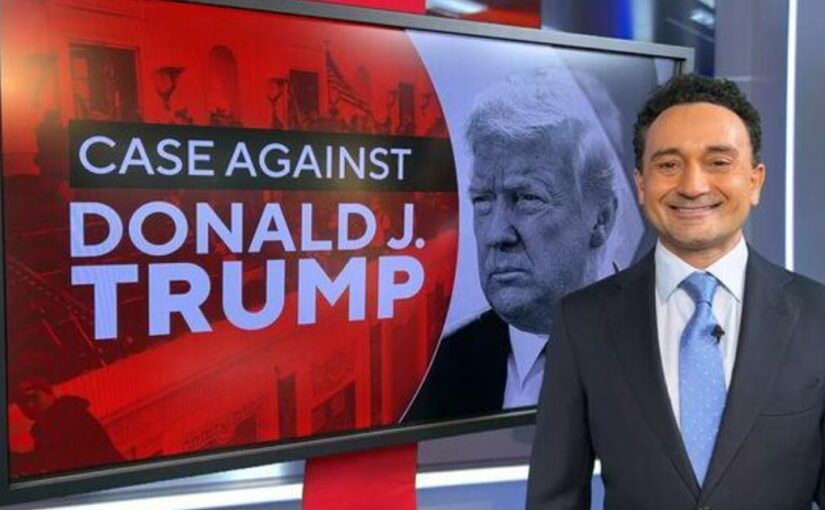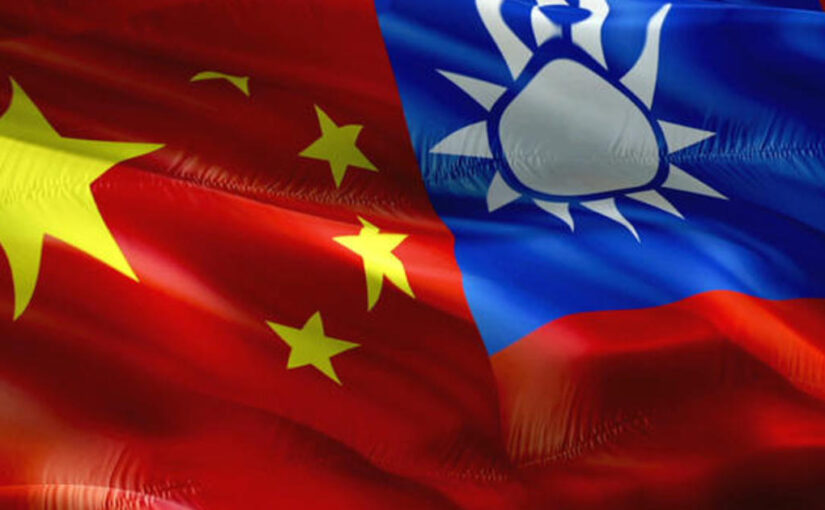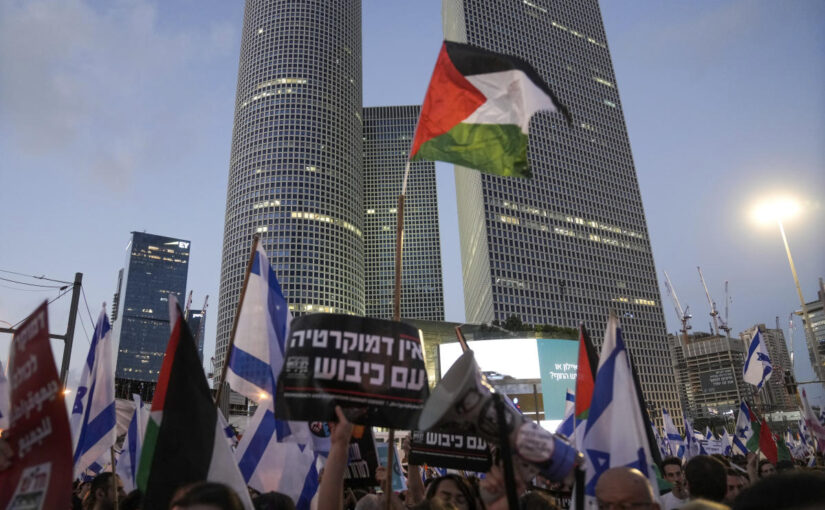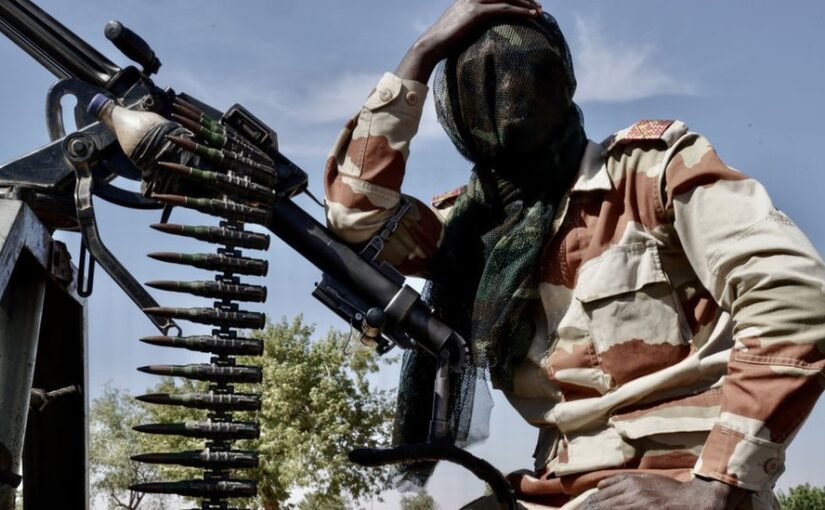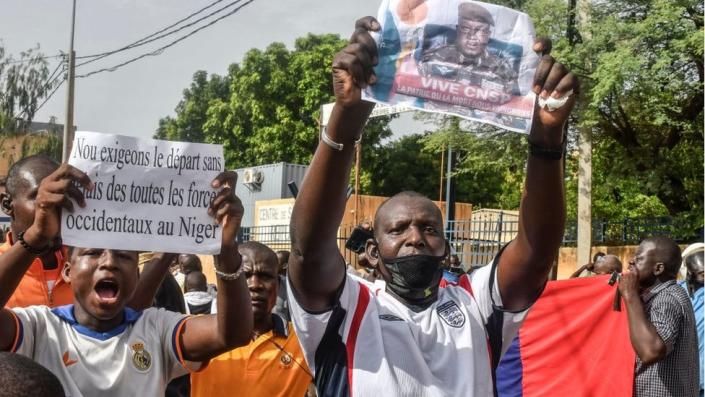America’s response to this week’s indictment of Donald Trump is providing a window into more than just how Americans view his alleged actions per se — but also into what they think it means for democracy itself.
- Half the nation believes Trump tried to stay in office beyond his term through illegal and unconstitutional means.
- To most Americans, such an effort would mean undermining democracy.
- For them and for a majority of Americans overall, the series of indictments and ongoing investigations against Trump are seen as “defending democracy” and “upholding the rule of law.”
- Just under a third of the country thinks Trump was trying to stay in office through legal, constitutional means — legal, in part because most of them (and including most Republicans) believe Trump’s claim that the election was illegitimate in the first place.
- For most Republicans, the series of indictments are also personal, seeing them as “an attack” on people like them — echoing some of Trump’s rhetoric on the campaign trail.
- And big majorities of Republicans think the indictments are an attempt to stop Trump’s 2024 presidential campaign.
Most Americans generally describe the multiple indictments Trump is now facing as “upholding the rule of law” and “defending democracy.”
Most also think they are an effort to stop Trump’s 2024 campaign, boosted by Republicans who are very likely to think so (but this group actually includes some Democrats, too, perhaps seeing that campaign as a threat to democracy in the same way they see Trump’s actions.)
A closer look at partisan differences
There are more strong party splits over what all these indictments mean. Democrats see it as upholding the law. Republicans see it as a political move, and most Republicans see it personally as an attack on people like them, channeling some of Trump’s campaign points.
There are some differences within the GOP, though: it’s MAGA-identifiers who see the indictments as an attack on people like them. But nearly all Republicans feel the indictments are an attempt to stop the Trump campaign.
Most independents, along with large numbers of Democrats, say that if in fact Trump was trying to overturn an election, that would be undermining democracy.
Opinion here seems related to what people believe about the 2020 election. Those who think Joe Biden was not legitimately elected — mostly Republicans — tend to think Trump planned to stay in office through legal processes, and some of them think he was upholding democracy.
As has been the case since he took office, most Republicans have said they don’t think Mr. Biden was legitimately elected.
Where might this go next?
Concern about an attempted overturn, and concern about political motivations, aren’t mutually exclusive. Many Americans are concerned about both when asked to weigh them.
But for Republicans, we see overwhelming concern more about the perceived politics, just as we did when we asked about the charges and politics after the classified documents indictment.
There’s a group, about a fifth of the country, who aren’t entirely taking party lines in either direction, who do think Mr. Biden won legitimately, and also that Trump didn’t act illegally. Some voice concern the charges are political, but four in 10 of them say that if Trump did try to overturn the election, it would be undermining democracy. So, this would be the group to watch if, in fact, a trial gets underway, but right now, they aren’t paying as much attention to the events.
This CBS News/YouGov survey was conducted with a nationally representative sample of 2,145 U.S. adult residents interviewed between August 2-4, 2023. The sample was weighted according to gender, age, race, and education based on the U.S. Census American Community Survey and Current Population Survey, as well as past vote. The margin of error is ±2.9 points.
Toplines
